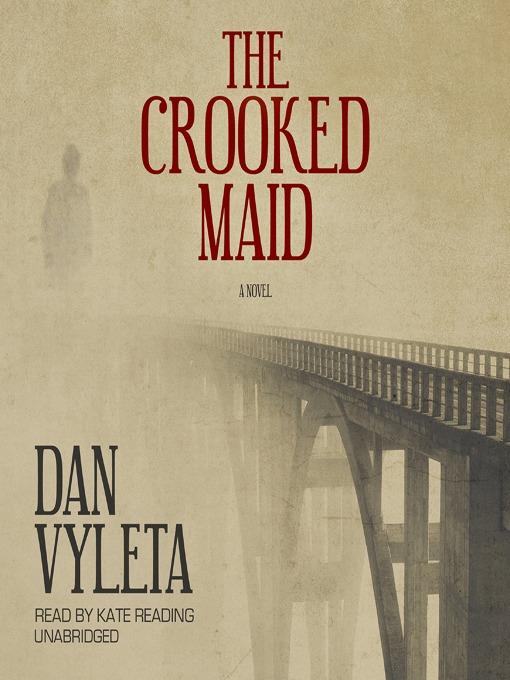
The Crooked Maid
A Novel
کتاب های مرتبط
- اطلاعات
- نقد و بررسی
- دیدگاه کاربران
نقد و بررسی

This third novel by a German-Canadian novelist of Czech extraction is his first in audio, but, unfortunately, he is badly served here. Kate Reading's distinctive British accents make her a strange choice for an atmospheric novel set in post-WWII Vienna--and for a suspense story that depends so heavily on dialogue. She does a credible job with narrative, particularly during the novel's centerpiece trial scene. Her Russian giant is also effective--except that she uses the same voice and inflections for the novel's chief detective. And not much can be said for her Viennese or American accents. Vyleta is a fine writer, and his compelling story may draw you in and hold you to the end. But for a more accurate reading, you need to go directly to the page. D.A.W. (c) AudioFile 2013, Portland, Maine

June 24, 2013
Set in Vienna in 1948 when the scars of WWII were fresh, Vyleta’s well-crafted but overly elliptical new novel (after The Quiet Twin) begins with a chance encounter. Robert Seidel, “exiled” at his Swiss boarding school during the war and on his way home, meets Anna Beer, an older woman returning to Vienna to look for her estranged husband, a psychiatrist and former POW in a Russian camp. Seidel’s household is darkly comic and highly dysfunctional: his mother insane, his father in a coma, his brother in jail for trying to murder the father, the family tenuously held together by the brusque street smarts of Eva Frey, the maid of the title (she has a deformity of the spine). The plot plods along, powered by the vaguest whisperings of suspense (Where is Beer’s husband? What happened during the War? Is Robert’s brother guilty?), but Vyleta’s goal seems to be to couple a Graham Greene–like atmosphere of suspicion and fear with a European intellectual novelistic endeavor (the story is a parable of guilt and reconciliation). Farcical, Kafkaesque, and teeming with odd leitmotifs (crows play a symbolic role), this novel could benefit from stronger storytelling and less symbolism, but should appeal to fans of writers like Heinrich Böll. Agent: Simon Lipskar, Writers House.

























دیدگاه کاربران